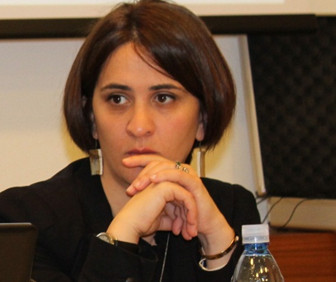
It has been 20 years since the country’s independence, but 70% of the land in Georgia is still unregistered; fragmented land parcels impose another problem to the individuals, thus hinders their commercialization process; the land market in the country does not promote investments in the agricultural sector and cannot increase competitiveness of Georgian products; these are some of the conclusions that experts of Economic Policy Research Center (EPRC) have made after studying the current state of land market in Georgia.
Agricultural land reform was first implemented in Georgia during the 90s when ownership was transferred to citizens from both the rural and urban population. The reforms, however, were defective; although a number of the social issues were solved, the result was the agricultural crises Georgia faces today.
The fragmentation of land parcels held under private ownership has been a major barrier to agricultural development, and yet it was an inevitable result of the first land reforms. Initially, the state transferred 760 thousand hectares of land to the population, while 460 thousand hectares were leased. Subsequent stages of land reform did nothing to reverse the trend and eventually the land parcels became extremely fragmented. Currently, an absolute majority of privately owned plots of land are smaller than 5 ha.
The census was, however, conducted in 2004, which could call in to question statistics regarding land distribution and, unfortunately, no new agricultural census has been conducted since then, but no events have taken place in the intervening period that would suggest the situation has changed dramatically.
The data suggests that fragmentation of the land parcels makes it hard to register and utilize them commercially. Difficulties with the commercialization process make the production process more expensive and have a negative effect on the price and competitiveness of agricultural produce.
One of the major issues on the path to land market development is unregulated land registration
Despite 20 years of efforts by the state and donor organizations, it is still hard to know what proportion of the land belongs to the private sector, what their total size is and the number of such land parcels. It is very difficult to obtain information about the location of land plots which are economically attractive. More importantly, even state agencies do not possess information about what proportion of agricultural land is owned by the state. In addition, there is assumedly a significant number of land plots in the so called “grey zones”: those land resources which may be neither in state nor in private ownership or whose ownership may be disputable.
The scale of the problem is highlighted by the statistic that around 70% of the land is unregistered. The problem is further deepened by the fact that the majority of the land is held by owners with registration certificates which are not considerate legitimate. These lands are not registered in the public registry, do not have drawings with measurements of parcels, and in certain cases issues of inheritance are not regulated properly. A land owner, therefore, might one day find his/her land parcel in someone else’s possession. This happens quite frequently, urging that a state-wide registration process should start immediately in order to avoid future disputes.
Land could not become a basis for market relations in Georgia. One of the results of the aforementioned is a gradual decrease in the volume of plough land in Georgia, this is when the prices on agricultural produce increase constantly. It may be the case that the productivity of the land is so low that there is no demand to invest in it. Therefore, we can assume there is a demand on land in Georgia, but that its realization is hard. Thus it is important to overcome hindering factors such as the protection of private property rights and the problem of registration. Only once these prerequisites are met will the government be able to fully benefit from the land .
The reforms launched in the 1990s must be completed: A well-considered registration program must be implemented on the basis of market principles and in combination with mechanisms contributing to the consolidation of land parcels.
The process will be quite expensive, but it is a necessary prerequisite to create civilized market relations in the field of agriculture and on the land market. Even though this initiative requires large-scale budgetary expenditures, it is a long-term investment that promises to be highly effective in the long-run (as opposed to one-time projects such as “vouchers” and “free cultivation-planting” or other short-term aid).
Furthermore, it is necessary that cooperation between land owners is fostered during the registration process, which will in its turn help establish farmer activities. It might be unpopular, but the land should be concentrated in the hands of those farmers who have enough capital to cultivate and invest in it. This might be a private large-scale farmer or farmers cooperative. The objective of the reform is to create a viable class of farmers, which can only be done by concentrating the available land into 50-100 thousand farmers, each from 5 to 10 ha in size. Otherwise any agricultural project will be a waste of money.

